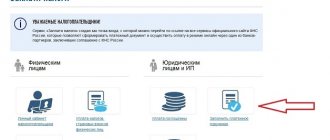- home
- Reference
- Insurance premiums
Employers are obliged to regularly pay insurance premiums for themselves and their employees. If an entrepreneur, for various reasons, is late with a payment or unreasonably underestimates it, he is subject to administrative liability in the form of fines and penalties.
If there is evidence of intentional evasion of obligations or particularly large amounts of debt, criminal liability is provided.
What the law says
By law, all companies that employ employees are required to pay insurance premiums on a timely basis, as well as report on them to various government authorities. Evasion from transferring funds is a crime for which the violator is held accountable. This applies to medical, pension or social contributions.
Since 2020, control over the transfer of insurance premiums has passed to employees of the Federal Tax Service, therefore measures of liability for violations are provided for by the provisions of the Tax Code and the Criminal Code. Contributions must be transferred by the 15th day of the month following the month of payment. If the payment date falls on a weekend, the period is postponed to the next business day.
Attention! A fine is provided not only for late payment of the fee, but also for incorrect calculation or underestimation of the base.
According to Art. 122 of the Tax Code, the fine is 20% of the unpaid amount, but if the tax authorities have evidence of deliberate evasion of contributions on the part of the employer, the amount of the sanction increases to 40%. According to Art. 15.11 of the Administrative Code provides for a fine for non-payment of contributions due to a gross violation of accounting rules.
Such a sanction is imposed on an official, and it ranges from 5 to 10 thousand rubles. in case of primary violation. If the mistake is made again, the payment increases from 10 to 20 thousand rubles, and disqualification may also be used for a period of 1 to 2 years.
If a company submitted a report on time, but was unable for various reasons to transfer funds within the established time frame, then it is exempt from paying a fine, but will have to pay a penalty. A fine is charged if not only the payment is overdue, but also if the reporting is missing , and also if the report contains gross errors.
To calculate the penalty, not only the size of the payment is taken into account, but also the number of days of delay, as well as 1/300 or 1/500 of the refinancing rate. To obtain data on the size of the key rate, you can study the website of the Central Bank.
It is also useful to read: Recalculation of insurance premiums
Responsibility for late payment of contributions
The legislation on insurance premiums also provides for liability for non-payment. But do fund inspectors have the right to bring the policyholder to justice if the amount of contributions was calculated by him without errors and “declared”, but transferred after the established deadline? By decision of May 31, 2013 No. VAS-3196/13, the Supreme Arbitration Court finally eliminated this possibility.
Insurance premiums are paid by policyholders during the billing period in the form of monthly mandatory payments ( clause 4 of article 15 of the Law of July 24, 2009 No. 212-FZ
).
They are calculated based on the results of each calendar month, based on the amount of payments and other remunerations accrued from the beginning of the year to the end of the corresponding month, and the tariffs of insurance premiums, minus the amounts of monthly mandatory payments calculated from the beginning of the billing period to the previous calendar month inclusive. Payments must be made no later than the 15th day of the month following the month for which the monthly obligatory payment is calculated.
Policyholders are required to report to the funds quarterly:
- –
to the Pension Fund for contributions to compulsory health insurance and compulsory health insurance – no later than no later than the 15th day of the second calendar month following the reporting (calculation) period, which recognizes a quarter, half a year and 9 months; - –
to the Social Insurance Fund for contributions to OSS in case of temporary disability and in connection with maternity – no later than the 15th day of the calendar month following the reporting (calculation) period.
In case of payment of the due amounts of insurance premiums later than those established by law, the policyholder must also pay penalties accrued for each day of delay (clauses 1, 3 of Article 25 of Law No. 212-FZ
).
Finally, non-payment or incomplete payment of premiums as a result of understating the base for calculating insurance premiums, other incorrect calculation of insurance premiums or other unlawful actions (inaction) of the policyholder entails a fine of 20 percent of the unpaid amount
(
clause 1 art. 47 Law No. 212-FZ
).
In this sense, it would seem that if the amounts of insurance premiums were calculated by the policyholder correctly, that is, there was no underestimation of the base or other incorrect calculation, and the payment was only overdue, the provisions provided for in paragraph 1 of Article 47 of Law No. 212-FZ are not applicable. In such a situation, penalties are only charged to compensate for budget losses due to late payment of contributions, but...
Request for payment of contributions
If arrears are identified, representatives of the fund must draw up a document about this fact in form 3-PFR ( approved by order of the Ministry of Health and Social Development of December 7, 2009 No. 957n
) and send the taxpayer a written notice of the unpaid amount of insurance premiums, as well as the obligation to pay it on time. Such a notice recognizes a demand for payment of arrears. As a general rule, it must be executed by the policyholder within 10 calendar days from the date of its receipt. But the request itself may indicate a longer period of time for payment of arrears on insurance premiums. The requirement form 5-PFR was also approved by order of the Ministry of Health and Social Development of December 7, 2009 No. 957n. At the same time, it contains a provision according to which, in case of failure to fulfill the requirement within the prescribed period, the policyholder bears responsibility as defined in Article 47 of Law No. 212-FZ, that is, for non-payment of contributions. Thus, it turns out that the corresponding fine can be collected from him, including in the event of failure to comply with the requirement to pay the arrears that arose as a result of late payment, despite the fact that the amount of contributions by the policyholder was calculated correctly and reflected in the reporting. Considering that in this sense, Form 5-PFR does not comply with Article 47 of Law No. 212-FZ, one of the payers of insurance premiums applied to the Supreme Arbitration Court with an application to invalidate Order No. 957n regarding the approval of this form.
Just a misinterpretation
In its response to the application, the Ministry of Labor, as the legal successor of the Ministry of Health and Social Development, indicated that the contested order was issued in full accordance with Law No. 212-FZ and within the framework of the powers that were vested in the Ministry of Health and Social Development at one time. At the same time, the ministry's experts fully confirmed that liability under Article 47 of Law No. 212-FZ can only be applied in the event of an understatement of the base for calculating insurance premiums, other incorrect calculations, or other unlawful actions (inaction) of payers that resulted in non-payment or incomplete payment of insurance amounts. contributions. Otherwise, penalties will only be charged. In other words, according to officials, the contested form of this order does not change, and therefore does not contradict a federal law or other regulatory legal act that has greater legal force, and does not violate the rights of the applicant. As for the practice of individual territorial branches of the Pension Fund in holding insurance premium payers accountable for failure to fulfill the requirements for payment of insurance premiums within the established period, this is only based on an incorrect interpretation of the provisions of the contested order in this part. As a matter of fact, this contradicts the methodological recommendations of the fund itself on organizing the work of its territorial branches ( approved by the order of the Pension Fund of Russia board of May 5, 2010 No. 120r
). According to clause 2.2. of this document, the payer of insurance premiums cannot be held liable on the basis of Article 47 of Law No. 212-FZ for non-payment (incomplete payment) of correctly calculated insurance premiums.
However, representatives of the Supreme Arbitration Court considered that the indication in form 5-PFR that if the requirement is not fulfilled within the prescribed period, the policyholder is liable under Article 47 of Law No. 212-FZ, in practice acquired greater force than the Ministry of Labor recognizes for it. And above all, this can be seen in the applicant’s case.
Misinterpretation has a source
The company that submitted an application to the Supreme Arbitration Court, by decision of the Pension Fund of Russia at the end of 2012, was held accountable for failure to pay the contributions correctly calculated by the company within the period established in the relevant requirement. At the same time, in the corresponding decision, the fund inspectors directly referred to the fact that Form 5-PFR contains a provision imposing liability under Article 47 of Law No. 212-FZ on the policyholder who has not fulfilled the requirement to pay the arrears within the period specified therein. As the inspectors considered, the Ministry of Health and Social Development, when approving the form, attributed such delay to other unlawful actions (inaction) regarding non-payment of insurance premiums.
In this regard, the argument of representatives of the Ministry of Labor that this practice of individual territorial branches of the Pension Fund of the Russian Federation is only based on an incorrect interpretation of the provisions of the contested order in this part and does not indicate that it contradicts Law No. 212-FZ and violates the rights of the applicant, the judge is not convincingly counted. On this basis, form 5-PFR, in terms of indicating the possibility of holding the insured liable, as defined in Article 47 of Law No. 212-FZ, was declared invalid by the judges.
Mikhail Tushnov, expert at CEINF LLC, commissioned by Podati magazine
When is a penalty charged?
Even if a penalty is imposed, this does not become a basis for exempting the entrepreneur from making insurance contributions. The decision to impose a fine or collect arrears is made by representatives of the Federal Tax Service during inspections, which can be desk or on-site.
Funds are collected in a forced manner, for which the money in the payer’s current account is written off . Initially, a written demand is sent to the head of the company, and if the employer refuses to voluntarily transfer funds, then the demand for collection is sent to the banking institution. The director of the enterprise receives the demand within three months after the violation or debt is discovered.
Taxpayers can be held liable for three years after the debt is incurred, since this period is represented by the statute of limitations. If a company has previously overpaid insurance premiums, it is impossible to impose a fine, since collection of sanctions is possible only if a debt to the budget arises.
Sanction amount
The exact amount of the fine or penalty depends on the amount of insurance premiums. The company's accountant is responsible for the calculations, so if he makes a serious mistake, he is additionally subject to administrative liability in the form of a fine or disqualification. The employer may take disciplinary action for such errors.
Reference! Entrepreneurs do not need to independently calculate the amount of the sanction, since Federal Tax Service employees send a request that already contains information about the fine or penalty. If the head of the company does not agree with the amount of the fee, he can challenge it in court.
Calculation
To check the correctness of the calculations made by the heads of the Federal Tax Service, it is recommended to independently calculate the penalties for insurance premiums.
The following methods are used for this:
- applying the correct formulas;
- using online calculators for calculations.
Many websites on the Internet offer calculators, thanks to which you can get figures on fines for insurance premiums without complex arithmetic calculations.
Calculation formulas
A fine is the consequences of incorrectly determining the amount of contributions or late payment of funds. If such errors are made unintentionally, the penalty is 20% of the unpaid amount. If representatives of the Federal Tax Service have evidence of deliberate evasion of contributions, then the payment is increased to 40%.
Therefore the following formula applies:
Amount of fine = arrears * 20% (40%)
Additionally, a penalty will be charged for each day of delay. To calculate it, the standard formula is used:
Amount of penalty = amount of arrears * number of days of delay * 1/300 of the refinancing rate
This formula is used by both entrepreneurs and company owners. But it is only suitable if there is a delay of up to 30 days. If the head of the company does not pay the fee after 30 days, then another formula applies:
Amount of penalty = amount of arrears * number of days of delay * 1/500 of the refinancing rate
Penalties and fines, like the contributions themselves, are now transferred not to the Pension Fund of Russia, but to the Federal Tax Service, so it is important to use the correct KBK, which can be studied on the tax inspectorate website. If you use incorrect details, this will lead to penalties for late payments.
The nuances of using an online calculator
Instead of calculation formulas, online calculators located on various sites on the Internet are effectively used.
To obtain a reliable result, a special form is filled out, and the following data is indicated:
- status of the debtor, which can be represented by an individual (IP) or the owner of a company;
- the amount of debt, and if the collection is calculated incorrectly, the arrears may be small;
- planned date of payment;
- established payment period.
Based on this information, the amount of fines and penalties is determined. If an entrepreneur finds out that the calculated figure is less than the value specified in the Federal Tax Service’s requirement, then he can challenge the sanction, for which he will have to file a claim.
It is also useful to read: Administration of insurance premiums
Where and when to pay
In 2020, there were some changes in the area of insurance premium payments. If previously citizens sent these payments to the Pension Fund, now all accruals are made in favor of the Federal Tax Service. It was under their jurisdiction that insurance payments were transferred (except for contributions for “injuries”).
At the same time, there were no changes regarding the payments themselves during this time, apart from the increase in the amounts of payments to the state. All individual entrepreneurs also make contributions:
- For myself. In this area, private entrepreneurs pay a fixed amount regardless of the results of financial activities (that is, you will have to pay even if you do not actually conduct any activity, but are listed as an individual entrepreneur). In 2020, their size is 40,874 rubles. (of which 32,448 rubles goes to compulsory health insurance contributions, 8,426 rubles goes to compulsory medical insurance contributions). The contribution amount may increase if the annual income exceeds RUB 300,000. Then another 1% of the income amount is added to the fixed contribution. The deadline for paying these payments is different - for fixed contributions, money must be paid before December 31, the rest - before July 1 of the next year following the reporting year.
- For your employees. The amount of insurance premiums in this case directly depends on the amount of the employee’s salary. Initially, the fixed rate for an employee is 22% on OPS. It is valid until the annual salary amount reaches 1,292,000 rubles, after which the rate is reduced to 10%. The employer also makes insurance contributions to the Social Insurance Fund and the Federal Compulsory Compulsory Medical Insurance Fund at 2.9 and 5.1% of the salary. Moreover, for contributions to the Social Insurance Fund, this rate is valid only until the total income is reached in the amount of 912,000 rubles. in a year. After this, this type of payment is not used. Payment of insurance premiums for employees must be made by the entrepreneur before the 15th day of the next month following the reporting month.
It turns out that the timing of payment of insurance premiums for yourself and your employees is very different. It is important for an entrepreneur to monitor the timely transfer of funds so as not to run into consequences.
How to avoid sanctions
Company leaders must be well aware of their rights in order to assert them when necessary.
You can avoid the accrual of sanctions under the following conditions:
- If the payer of contributions promptly handed over to the employees of the Federal Tax Service a report with a correctly calculated payment, but was unable to transfer the contributions on time, then a fine under Art. 75 Tax Code, although you will have to pay a penalty for each day of delay;
- a fine is charged for incomplete payment due to an underestimated tax base or for other illegal actions, for example, if an entrepreneur is inactive and therefore simply refuses to pay contributions;
- if the employer urgently pays the missing amount or submits an updated report to the Federal Tax Service department, then this sometimes allows one to avoid sanctions, but this must be done before a direct inspection by the inspection body;
- the head of the company is exempt from liability if his actions are related to official explanations of the authorized authorities.
Reference! The report on insurance premiums is submitted quarterly by the 30th day of the month following the quarter, and premiums must be transferred every month.
Organizations
The following Article 199 of the Criminal Code of the Russian Federation introduces criminal liability for non-payment of insurance contributions to the Federal Tax Service by a legal entity. The approach is the same: what matters is the total amount of non-transfer of these payments.
Conditions for liability under the Criminal Code of the Russian Federation
Large size:
- for 3 financial years in a row - from 5,000,000 rubles, provided that the share of unpaid amounts in the aggregate (!) exceeds 25% of those payable;
- amount – from 15,000,000 rubles.
A particularly large size for Article 199 of the Criminal Code of the Russian Federation is:
- for 3 financial years in a row from 15,000,000 rubles, provided that the share of unpaid amounts in the aggregate (!) exceeds 50% of those payable;
- amount – from 45,000,000 rubles.
Types and amounts of criminal penalties under Art. 198 of the Criminal Code of the Russian Federation remained the same.
Also see “Criminal liability has been introduced for non-payment of insurance premiums.”



